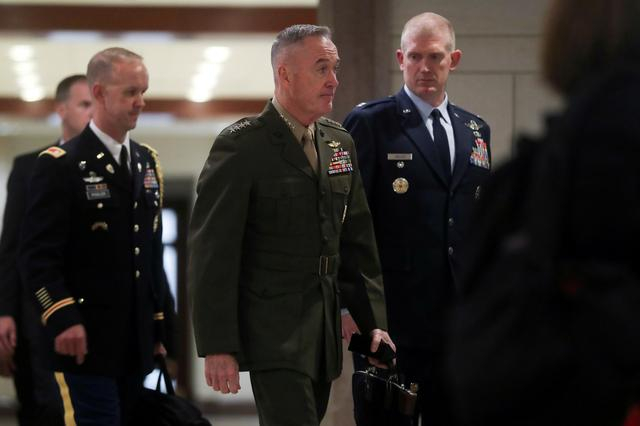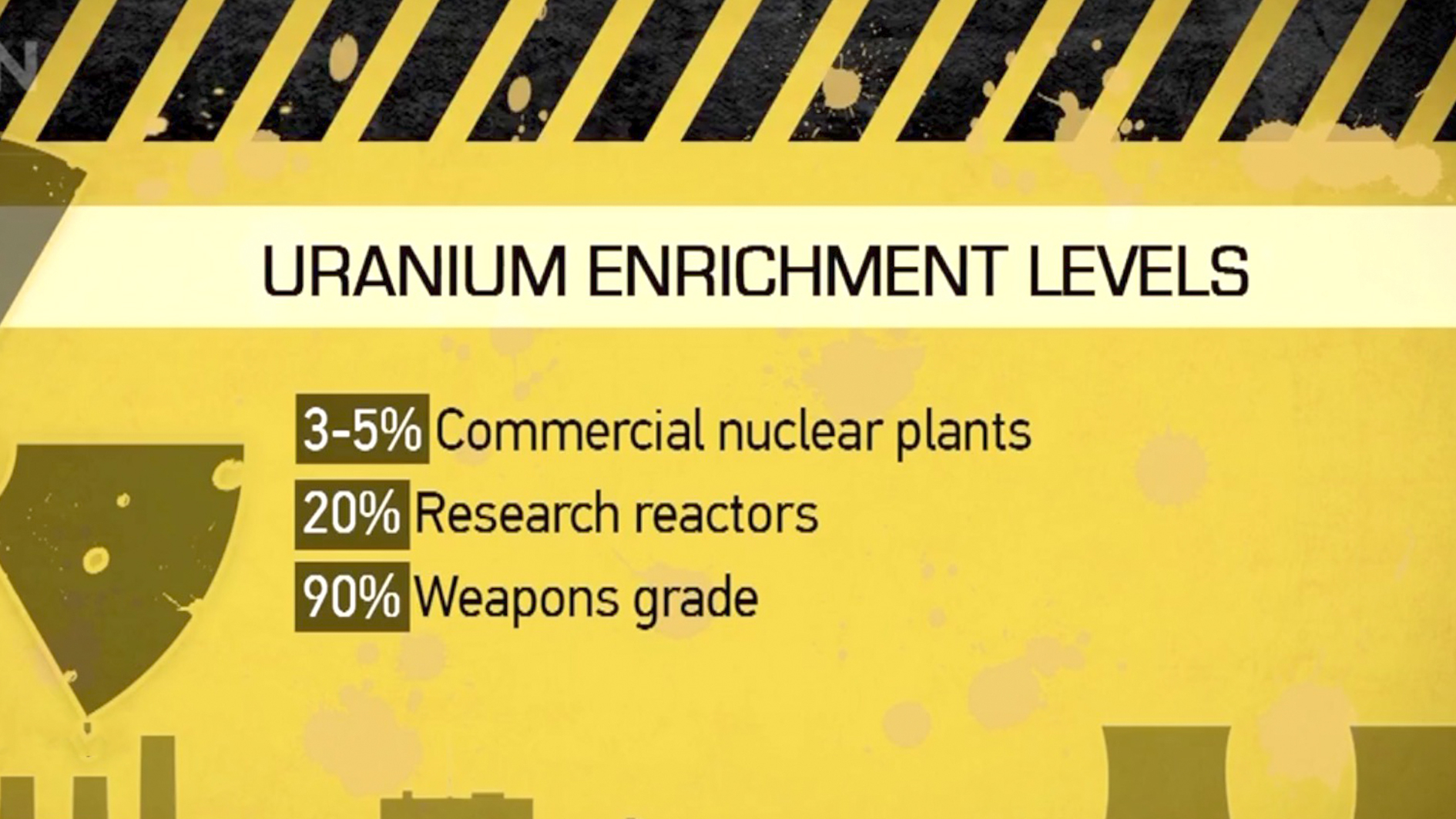

The United States hopes to enlist allies over the next two weeks or so in a military coalition to safeguard strategic waters off Iran and Yemen, the top U.S. general said on Tuesday.
Under the plan, which has only been finalized in recent days, the United States would provide command ships and lead surveillance efforts for the military coalition. Allies would patrol waters near those U.S. command ships and escort commercial vessels with their nation's flags.
Marine General Joseph Dunford, the chairman of the Joint Chiefs of Staff, articulated those details to reporters following meetings on Tuesday about it with acting U.S. Defense Secretary Mark Esper and Secretary of State Mike Pompeo.
"We're engaging now with a number of countries to see if we can put together a coalition that would ensure freedom of navigation both in the Straits of Hormuz and the Bab al-Mandab," Dunford said.
"And so I think probably over the next couple of weeks we'll identify which nations have the political will to support that initiative and then we'll work directly with the militaries to identify the specific capabilities that'll support that."

U.S. Chairman of the Joint Chiefs Marine Corps General Joseph Dunford arrives to hold a classified briefing on Iran, with Secretary of State Mike Pompeo and acting Defense Secretary Patrick Shanahan, for members of the House of Representatives on Capitol Hill in Washington, U.S. May 21, 2019. /Reuters Photo
A joint military coalition
Iran has long threatened to close the Strait of Hormuz, through which almost a fifth of the world's oil passes, if it was unable to export its oil, something U.S. President Donald Trump's administration has sought as a way to pressure Tehran to renegotiate a deal on its nuclear program.
But the U.S proposal for an international coalition to safeguard shipping in the strait, at the mouth of the Gulf, has been gaining momentum since attacks in May and June against oil tankers in Gulf waters. Last month, Iran shot down a U.S. drone near the strait, prompting President Donald Trump to order retaliatory air strikes, only to call them off.
The deputy chief cabinet secretary of Japan, one of Washington's key global allies, declined to comment directly when asked about Dunford’s comments.
"We are quite concerned about mounting tensions in the Mideast, and guaranteeing safe passage in the Hormuz Strait is vital to our nation's energy security, as well as to the peace and prosperity of international society," Kotaro Nogami told a regular news conference in Tokyo on Wednesday.
"Japan will stay in close contact with the United States and other related nations and continue to make efforts for stability and the reduction of tension in the Mideast."

IAEA confirms Iran's uranium enrichment to 4.5% purity
Meanwhile, the UN nuclear watchdog, International Atomic Energy Agency (IAEA), held an emergency meeting in Vienna to find a way forward on the Iran nuclear crisis on Wednesday.
The IAEA confirmed in the closed-door meeting that Iran is enriching uranium to 4.5 percent purity, above the 3.67 percent limit set by the 2015 nuclear deal with major powers.
The meeting was held at Washington's request as Tehran's 60-day deadline for European signatories to provide economic relief ended on July 7. A French envoy will also attend on behalf of the country's president to boost efforts to save the deal.
On July 1, the IAEA verified that Iran's stock of enriched uranium was 205 kg, more than the maximum 202.8 kg allowed under the agreement. At Wednesday's meeting, IAEA officials said Iran's stock of enriched uranium was now 213.5 kg.
Both figures were verified on Tuesday. Monday's enrichment level was verified using online enrichment monitors, which report in real time. They said the level reported on Wednesday, however, was the result of a sample analysis.
On Monday, senior Iranian officials said the country was over the 3.67 percent limit, its second breach of the 2015 deal in as many weeks, and threatened to keep reducing its commitments every 60 days unless signatories of the pact moved to protect it from U.S. sanctions. But they left the door open to diplomacy.
The rise in the enrichment level is still far below the 20 percent Iran refined to before the nuclear accord, and the roughly 90 percent needed to make uranium weapons-grade.
Iran says it is responding to punishing economic sanctions the United States has imposed on Tehran since Washington pulled out of the nuclear deal a year ago. Washington says it is open to talks on a more far-reaching accord but Iran says it must first be able to sell as much oil as it did before the U.S. withdrawal.
(With input from Reuters)

Copyright © 2018 CGTN. Beijing ICP prepared NO.16065310-3
Copyright © 2018 CGTN. Beijing ICP prepared NO.16065310-3